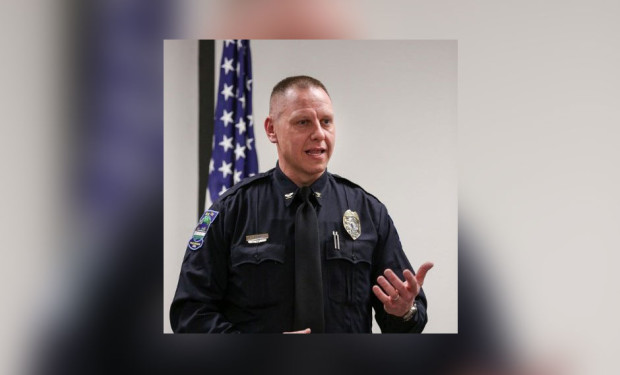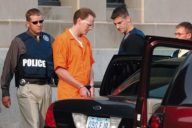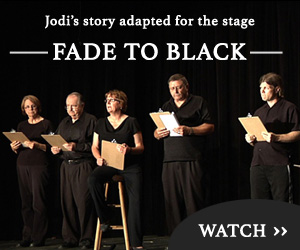Police Chief Jeff Brinkley told FindJodi’s Caroline Lowe he believes Jodi’s remains are most likely within a couple of counties from where she disappeared on her way to KIMT TV in Mason City, Iowa, on June 27,1995.
The chief said he’s not ready to publicly rule out any potential suspect who has been investigated. He’s been briefed on the case by MCPD investigators and hopes to read the entire case file before he finishes his first year on the job in January.
Chief Brinkley said anniversaries of crimes can be important dates to perpetrators.
He hopes someone will come forward with information investigators need to help solve Jodi’s case.
Here are excerpts from Caroline’s most recent interview with the MCPD police chief:
JB: When we look at this 21 years out, people aren’t getting any younger, memories aren’t getting any better, and certainly evidence that we haven’t captured isn’t getting any better. So, if there’s something we can get in hand that’s tangible for us to hold onto, to analyze, to look into, those are always good things for us to check out.
CL: What kind of things are you hearing about?
JB: We’ve had a couple of calls from people this spring on vehicles that have been in places for some time. They have had some concerns, they are suspicious, and they are calling now. So we are going out and following up on those.
And some have been there for a good long time, a decade or two in a couple of cases…it’s worth looking into because you just never know what we are going to find, or what we’re going to stumble into in one of those. And it could be another case, …where we may find something. It hasn’t happened yet but you just never know as people try to hide things,sometimes bodies and other kinds of evidence. Certainly, those are leads we want to follow up on.
CL: There has been a lot of speculation in past 20 years about different people as suspects. Have you been able to rule anybody out at
this point?
JB: I don’t think we are ready to do this at this point. We are continuing to talk to people who have at different points been more or less cooperative with police in this investigation. We are hoping to continue to work on that and, maybe at some point get more public with some of that information.
CL: What about the role of our FindJodi team and our website? How do you see that as a tool to help you in the investigation?
JB: I think it’s a great way to help keep her story alive.
We’ve never cold-cased this. We continue to get leads on it and information, some of it comes from that FindJodi source. It’s a great tool for us, it’s something a lot of other cases don’t have a history of having.
It keeps the case front and center with people so they are aware of it and thinking about it; it’s always useful.
It’s also a legacy piece for this for awareness for women, for special victims and those kinds of things. It’s also a situational awareness piece that keeps personal safety in front because of what happened to Jodi.
CL: Sounds like you’ll need to lock yourself in a room for awhile to look at the investigative file.
JB: I’m looking forward to getting through it on my own, as a fresh set of eyes, as someone who hasn’t worked this before. I’m looking forward to just seeing what I can come to a conclusion on, or what my best guesses are after I read through things. I’m looking forward to getting that done.
At some point as I settle into my role here, and probably come up on the one-year mark, I can take a little time and maybe put some extra effort into going back through this file again, with a fresh set of eyes, looking at the options and see if there’s something we are missing or game planning the strategy to move ahead. Pulling out old evidence, maybe doing some reanalysis on some things, different lab stuff. Those kinds of things.
CL: How important is an anniversary to a person who committed a crime?
JB: They very much can be. It depends on the person. But I would expect they are aware of it, they pay attention to it, probably watching the media, I’m guessing maybe hitting the FindJodi site. Those kinds of things. So I think, assuming they are still in tune to what’s going on, they are paying attention.
CL: Anything you want to say with the anniversary of Jodi’s disappearance being 21 years on Monday?
JB: We rely on our public many times for help on all kinds of different cases. I’d say this one is no different.
Somewhere, someone has the information that we need to move ahead on this. Maybe not to solve it but at least, certainly, to give us information we don’t have.
I’d ask they’d think hard about the time that’s passed, Jodi’s family, other victims’ families of unsolved cases, and put some real human heart behind that. Maybe find the time, make the time to come into see us about what they know.
CL: What’s next as you review the investigation?
JB. We are 21 years out.
Technology has changed. DNA has changed. What did we miss,what did we collect? What’s something we can analyze to catch a break. And if we ever get remains, that’s a serious game-changer for us, too, I think as we kind of pin down what happened, try to document any skeletal injuries. Things like that we can identify. Those things are all big deals to us as we try to put it all together.
CL: Is it your hunch that she’s somewhere in the area?
JB: I have to guess, yes. I think within a couple of counties, probably in a circle. I think that’s probably the case.
CL: You mentioned maybe, at some point, considering letting outside people look at case. What would it take to have you do that, such as the Vidocq Society investigators?
JB: I don’t know. We’ve had that talk with DCI and none of us are there yet. If we are at a point where we think we’ve exhausted every resource we have, then I think maybe. But I think right now they’re not going to do anything that we don’t already do. They’d just be going to do it with a different set of eyes and a different set of experiences.







